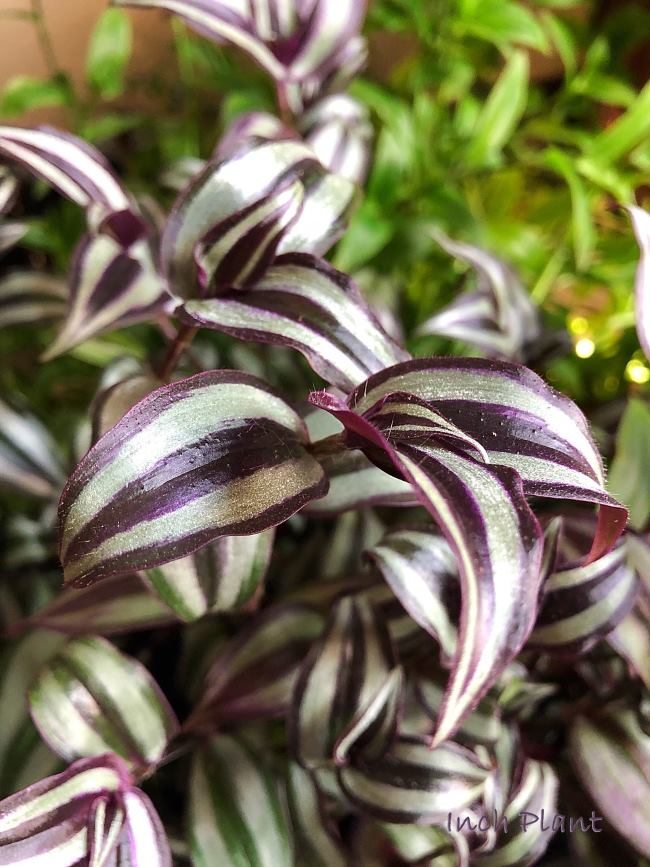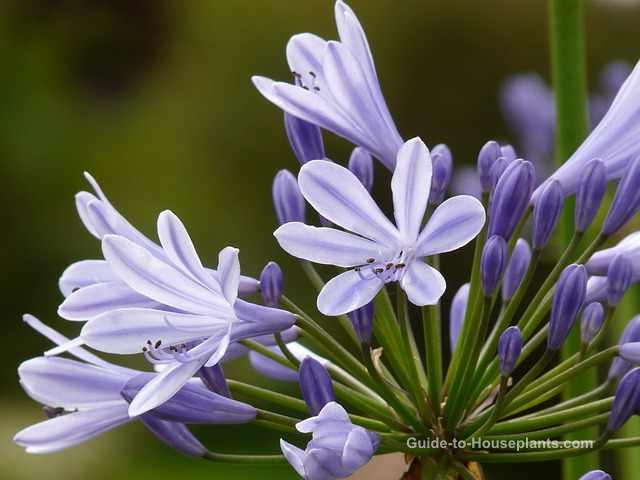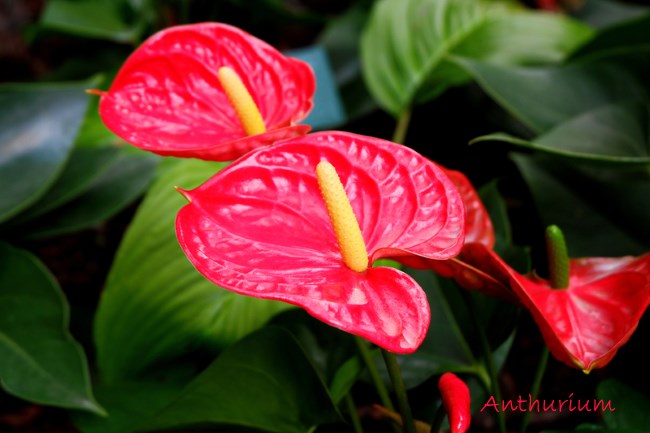Plectranthus 'Mona Lavender'
Plectranthus 'Mona Lavender' is a fast-growing perennial shrub that's fast becoming a favorite house plant.
This shade-lover is an exciting new cultivar that's perfectly suited to growing indoors. Few other plants bloom so dependably indoors, for so many months, and fewer still are as easy to grow as "Mona."
In this houseplant care guide, you'll find out how much sunlight, water and fertilizer this tropical beauty wants to make it bloom in autumn and winter with captivating purple speckled flowers.
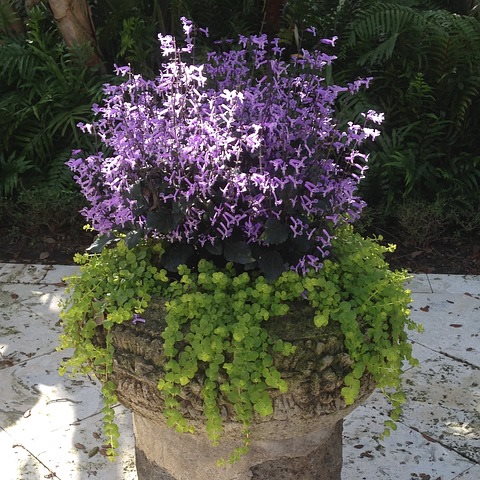 Mona Lavender takes center stage, underplanted with Creeping Jenny. Image by VictoriaLK
Mona Lavender takes center stage, underplanted with Creeping Jenny. Image by VictoriaLKGet to Know Plectranthus 'Mona Lavender'
Upright stems are densely covered with dark-green ovate leaves with toothed edges. The glossy leaves are evergreen with purple undersides, making this a beautiful house plant year-round.
Native to Tropical South Africa, Plectranthus 'Mona Lavender' likes the same warm temps we do. It also prefers shade. It's a good idea to keep this easy-to-please plant indoors year-round.
How big does Mona Lavender get? Mature plants will reach a height of up to 2 ft (60 cm).
Just when most plants are slowing down in autumn, this flowering beauty sends up tall spikes of tubular lavender flowers spotted with purple. It's the shorter daylight hours that trigger blooming, so don't put it under artificial lights. You'll likely enjoy flowers right through the winter and into spring.
Pinch and prune. Pinching off new stem tips will promote branching and keep the plant compact. (Don't toss them out -- you can easily propagate them for more plants.) Flowers grow at the tips of new branches, so you'll get more blooms this way. Also, cut off flower spikes when flowers have faded to encourage more blooms.
Repot in spring after flowering is over. Move up to a pot only 1-2 inches (2.5-5 cm) larger to give it a little room to grow. Use a pot with drainage holes to prevent soggy soil, which leads to root rot.
Problems with this plant are few. Hot, direct sun and dry soil will kill it. You can keep your plant indoors year-round. But if you move it outdoors for the summer, keep it shaded from direct sun. Also, check the soil every couple days so that it doesn't dry out.
Mona Lavender Buying Tip
'Mona Lavender' is a newer cultivar. If you're unable to find it at your local garden center, ask for it. It's well-worth growing. You may find it available at online nurseries.
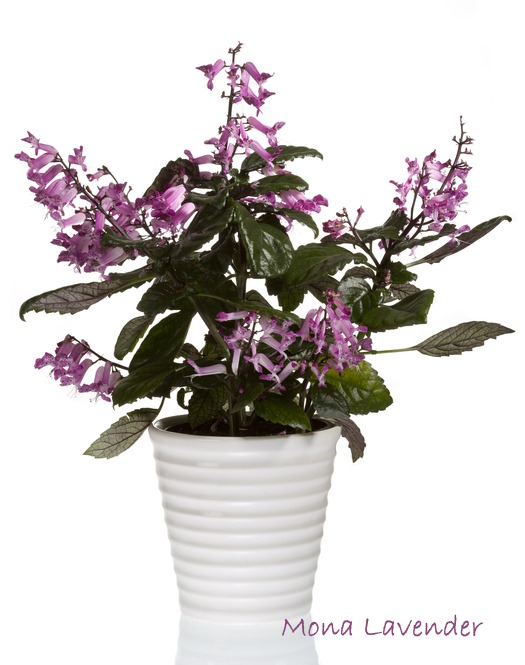 Photo istockphoto.com
Photo istockphoto.com'Mona Lavender' Care Tips
Light: Moderate to bright indirect light year-round
Water: Water thoroughly, then allow the top 1 in (2.5 cm) to dry out between waterings.
Humidity: Average room (around 40-50% relative humidity). Indoor air can become extremely dry in winter; it's a good idea to use a humidity gauge near your plant, rather than guess. Use a pebble tray or cool-mist room humidifier, if needed.
Temperature: Average room temperatures (65-80°F/18-27°C) suit this tropical plant just fine. Aim to keep it warm year-round. If you put 'Mona Lavender' out on the patio for the summer, bring it back in when the temperature drops. It won't tolerate frost.
Soil: Peat moss-based potting mix with added perlite and/or vermiculite for good drainage. African violet potting mix is ideal.
Fertilizer: Feed every 2 weeks with water-soluble fertilizer.
Propagation: Take 4 in (10 cm) stem tip cuttings in spring or summer. They'll root easily in moist potting mix or water. Sow seeds in spring.
